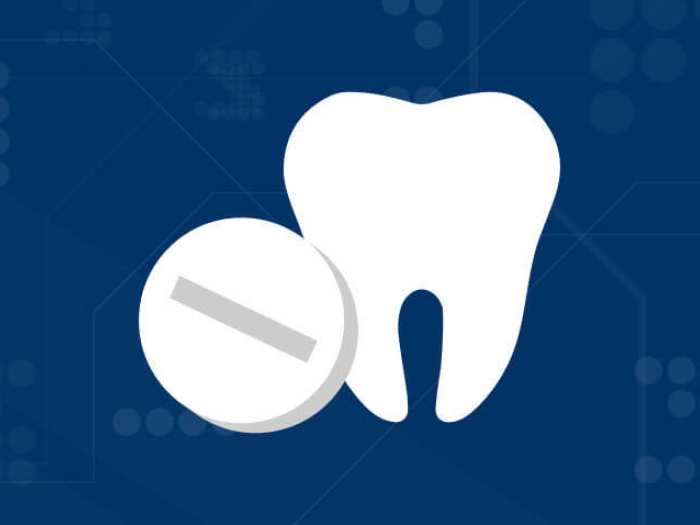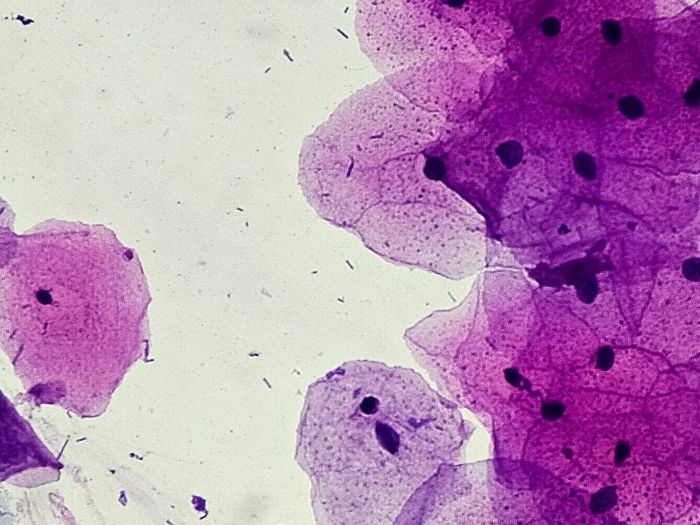Patients in their late teens and 20s had the highest risk of persistent use if they received opioids around the time of their extraction, a new study finds.
7:00 AM
Author |

Getting wisdom teeth removed may be a rite of passage for teens and young adults, but the accompanying opioid painkiller prescriptions many of them receive can lay a foundation for long-term opioid use, a new study finds.
LISTEN UP: Add the new Michigan Medicine News Break to your Alexa-enabled device, or subscribe to our daily audio updates on iTunes, Google Play and Stitcher.
Young people ages 13 to 30 who filled an opioid prescription immediately before or after wisdom teeth extraction were nearly 2.7 times as likely as their peers to still be filling opioid prescriptions weeks or months later.
Those in their late teens and 20s had the highest odds of persistent opioid use compared with those of middle and high school age, a University of Michigan team reports in a research letter published this week in JAMA.
Led by Calista Harbaugh, M.D., a U-M research fellow and surgical resident, the researchers used insurance data to focus on young people who were "opioid naïve" — in other words, those who hadn't received an opioid prescription in the six months before their wisdom teeth surgery and who didn't have any other procedures requiring anesthesia in the following year.
"Wisdom tooth extraction is performed 3.5 million times a year in the United States, and many dentists routinely prescribe opioids in case patients need them for post-procedure pain," says Harbaugh, a National Clinician Scholar at U-M's Institute for Healthcare Policy & Innovation.
"Until now, we haven't had data on the long-term risks of opioid use after wisdom tooth extraction. We now see that a sizable number go on to fill opioid prescriptions long after we would expect they would need for recovery, and the main predictor of persistent use is whether or not they fill that initial prescription."
Other factors also contributed to a risk of long-term opioid use. Teens and young adults who had a history of chronic pain conditions or mental health issues such as depression and anxiety were more likely than others to go on to persistent opioid use after filling their initial wisdom tooth-related prescription.
Patients should talk to their dentists about how to control pain without opioids first.Calista Harbaugh, M.D.
More about the study
In all, 1.3 percent of 56,686 wisdom tooth patients who filled their opioid prescriptions between 2009 and 2015 went on to persistent opioid use — which is defined as two or more prescriptions filled in the next year written by any provider for any reason.
MORE FROM THE LAB: Subscribe to our weekly newsletter
Of the 14,256 wisdom tooth patients who didn't fill an opioid prescription, only 0.5 percent went on to become persistent users.
Though those numbers may seem small, the high number of wisdom teeth procedures each year means a sizable population of young people is at risk, notes Harbaugh, also a research fellow with the Michigan Opioid Prescribing Engagement Network, or Michigan OPEN.
She and her team used data from employer-based insurance plans, available through the Truven MarketScan database purchased for researchers' use by IHPI. Chad Brummett, M.D., co-director of Michigan OPEN, is senior author of the new research; the team includes U-M School of Dentistry professor Romesh Nalliah, D.D.S., MHCM.
Some uncertainties remain. The data show opioid prescriptions filled, not actual use of opioid pills by patients. Leftover opioids pose a risk of their own, because they can be misused by the individual who received the prescription, or by a member of their household or a visitor.
Researchers also couldn't tell the reason for the later opioid prescription fills by those who went on to persistent use.
Still, the authors suggest that dentists and oral surgeons should first consider prescribing non-opioid painkillers to their wisdom tooth patients. If pain is acute, they should prescribe fewer pills than the seven-day opioid supply recently recommended by the American Dental Association for any acute dental pain.
"There are no prescribing recommendations specifically for wisdom tooth extraction," says Harbaugh. "With evidence that nonsteroidal anti-inflammatories may be just as, if not more, effective, a seven-day opioid recommendation may still be too much."
Brummett adds: "These are some of the first data to show the long-term ill effects of routine opioid prescribing after tooth extractions. When taken together with the previous studies showing that opioids are not helpful in these cases, dentists and oral surgeons should stop routinely prescribing opioids for wisdom tooth extractions and likely other common dental procedures."
Importance for patients and parents
Getting a prescription for an opioid painkiller around the time of a wisdom tooth procedure comes with many decision points, Harbaugh says.
"Patients must decide whether to fill the prescription and take the medication, and where to store and dispose of the unused pills," she notes. "All of these decision points need to be discussed with patients. Patients should talk to their dentists about how to control pain without opioids first.
SEE ALSO: Opioids Before Surgery Mean Higher Costs, Problems More Likely Afterward
"If needed, opioids should only be used for breakthrough pain as backup if the pain's not controlled with other medications."
The Michigan OPEN team is currently studying the wisdom tooth extraction population further, by speaking with patients and parents about their experience and how many opioid pills they actually took. This will allow them to create evidence-based prescribing guidelines just like the ones they've developed for other operations.
The research was funded by the federal Substance Abuse and Mental Health Services Administration, the Michigan Department of Health and Human Services, and University of Michigan Precision Health

Explore a variety of health care news & stories by visiting the Health Lab home page for more articles.

Department of Communication at Michigan Medicine
Want top health & research news weekly? Sign up for Health Lab’s newsletters today!





